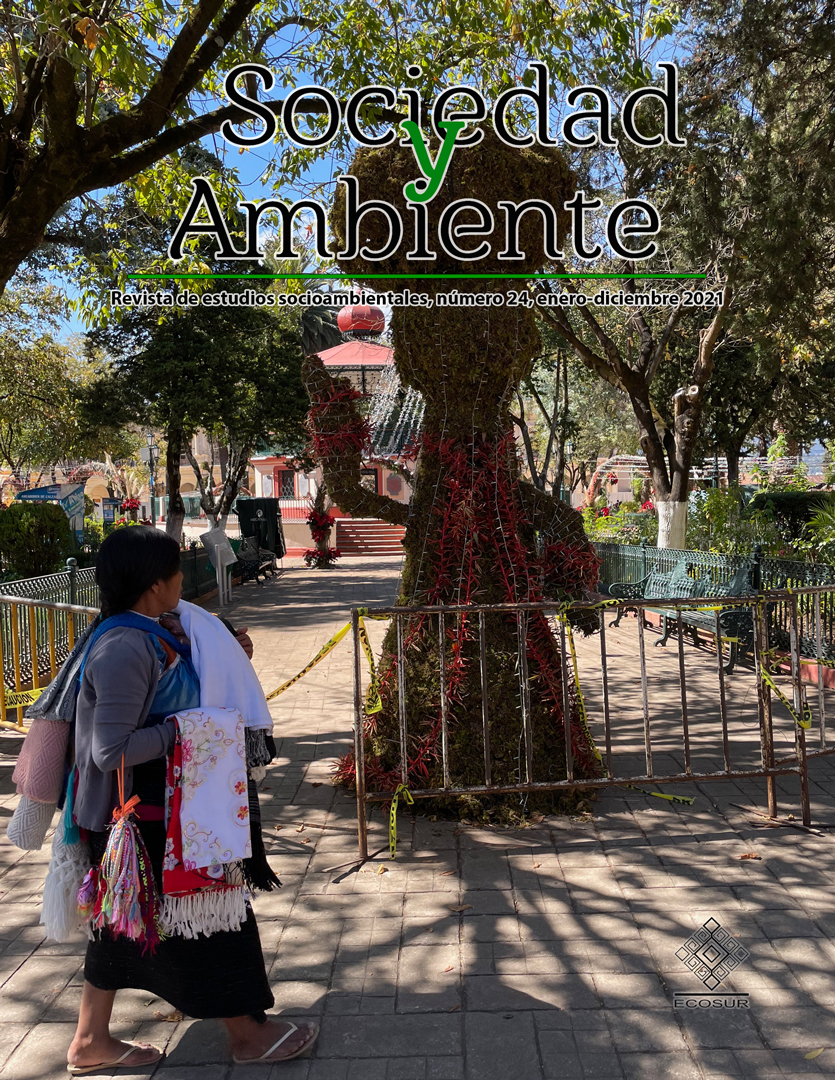Abstract
This article explores the biodiversity issue as a hegemonic discourse that often does not correspond to the conservation of nature but is governed by the interests of different institutions that see new forms for the appropriation and commercialization of biological and genetic resources. Starting from a poststructuralist approach, it seeks to understand the role of biodiversity discourse in the capitalization of nature. The analysis focused on the case of Ecuador regarding biopiracy. In conclusion, despite having environmental legislation and being framed within international conventions on the access and distribution of the benefits of biodiversity and ancestral knowledge, the genetic resources end up being stolen by research centers in the global North.

Sociedad y Ambiente by ECOSUR is licensed under a Creative Commons Reconocimiento-NoComercial-SinObraDerivada 2.5 México License


